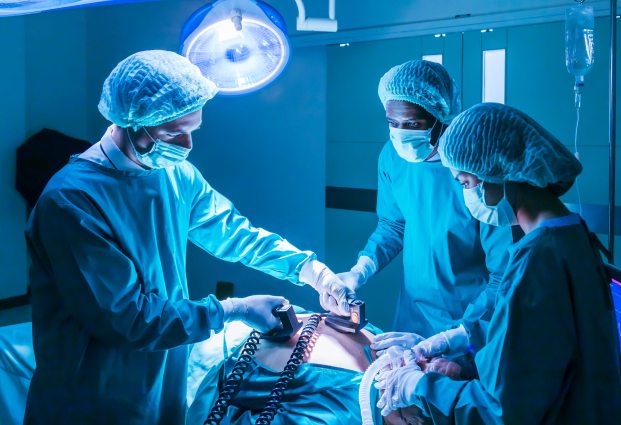Handling acute infections, including sepsis, severe bacterial or viral infections, and other communicable diseases. It offers quick diagnosis along with isolation protocols and immediate treatment.
Treating minor to major burns with specialised services, including wound debridement, pain control, and critical care for extensive burn injuries.
Services of this kind include performing emergency surgeries in cases of appendicitis, bowel obstructions or traumatic injuries.
Specific equipment and staff trained in pediatric care provide the right treatment for young patients who suffer from acute conditions, such as respiratory infections, fevers and traumatic injuries.
Emergency treatment for drug overdoses, poisoning, or toxic exposures through gastric lavage, activated charcoal, or specific antidotes.
Specialising in acute mental health emergencies like suicidal behaviours, panic attacks, or psychotic episodes. Patients are stabilised and examined, and follow-up care is coordinated with psychiatric specialists.
Pain management for ailments like kidney stones, acute migraines, and severe burns. Pain relief is provided through medications or procedures such as nerve blocks, ensuring patient comfort and stabilisation.
Epinephrine injections, antihistamines, and airway management are done to prevent shock or asphyxiation, as well as to treat severe allergic reactions immediately so that it doesn’t escalate into life-threatening circumstances.
The department handles asthma attacks, pneumonia, and acute respiratory distress syndrome. The emergency personnel have been trained in oxygen treatment and bronchodilators.
To diagnose and treat strokes in the key time frame for reducing brain damage. These services also include administering clot-dissolving drugs, CT scans, and coordinating immediate neurovascular care.
These services are directed toward managing critical heart conditions like heart attacks, arrhythmias, and cardiac arrest. The Emergency Department offers quick diagnosis through ECGs (electrocardiograms) and defibrillation to restore the heart's function.
For serious injuries resulting from accidents, falls, or physical trauma. The Emergency Department has the materials to deal with such cases as fractures, head injuries, and soft tissue wounds. The trauma team will stabilise the patient and administer immediate interventions to prevent subsequent complications.



















